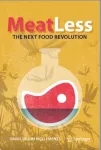“The United States is experiencing a tidal wave of misinformation and disinformation, which has real-world health impacts, such as preventable misery and deaths, and is escalating already dangerously high levels of mistrust and distrust in healthcare, public health and science,” said Reed Tuckson, M.D., convener of the Coalition for Trust in Health & Science. “Addressing this infodemic is fundamental to the values of the Coalition’s members and, together, we can and will make a positive impact on the health of individuals and the nation.”
Coalition’s Focus on Supporting Americans’ Health Decisions
The Coalition is focused on supporting Americans’ health decisions by helping them navigate the increasing amount of information available from an increasing number of sources. This is a long-term effort to address longstanding challenges around trust and new challenges brought on by the proliferation of social media.
The collective effort of the Coalition is focused on correcting misinformation and countering disinformation that decrease trust in health, healthcare, public health and science and that has the potential to harm the public’s health.
Coalition Aims to Provide Rapid Responses to Particularly Egregious Disinformation
A key aspect of the Coalition’s plan is to mobilize the breadth of its network of members to facilitate rapid-cycle debunking of particularly egregious disinformation and misinformation incidents that continue to emerge with concerning frequency and that have the potential to harm the public. Additionally, the Coalition has begun the creation of an online interactive Compendium of relevant programs operated or sponsored by Coalition members for the purposes of sharing ideas; stimulating collaboration; facilitating research while also identifying research gaps; enabling research findings to inform ongoing and new initiatives; supporting the spread of effective strategies; and fostering measurement of collective impact.
“Countering dangerous disinformation quickly and effectively is essential to public health,” said Sudip Parikh, chief executive officer of AAAS and executive publisher of the Science family of journals. “We are excited to be part of the Coalition for Trust in Health & Science and to work with other organizations that share the same vision for addressing the current crisis in trust plaguing the scientific landscape, encouraging evidence-based health choices, and addressing misinformation and disinformation. This collective collaboration has the potential to achieve the vision of evidence-based decision making in healthcare far more effectively than individual action.”
50 Member Organizations Representing Diverse Interests Join Coalition
The alliance is currently comprised of 50 national organizations representing basic and applied science organizations; health academicians; health services researchers; pharmaceutical manufacturers; physicians, nurses, pharmacists and other professional disciplines; public health professionals; health insurers; health regulators; ethicists; health humanists; foundations; health consumer organizations; and health consulting, policy and communications organizations.
Members share the Coalition’s vision that “All people have equitable access to and confidence in the accurate, understandable and relevant information necessary to make personally appropriate health decisions.” Additionally, members have pledged to 1) Support efforts to advance people’s scientific and health literacy, earn public trust and improve health outcomes and health equity, and 2) Work individually and collectively to correct misinformation and counter disinformation that threatens people’s health and well-being.
Current members include:
AAAS Academy Health Accreditation Council for Continuing Medical Education AHIP American Academy of Nursing American Association of Colleges of Osteopathic Medicine American Association of Colleges of Pharmacy Association of American Medical Colleges (AAMC) American Board of Internal Medicine ABIM Foundation American College of Physicians American College of Preventive Medicine American Hospital Association American Medical Association American Nurses Association American Physical Society American Psychological Association American Public Health Association American Society of Tropical Medicine and Hygiene America’s Physician Groups Arnold Gold Foundation Association of American Indian Physicians BCG Berman Institute of Bioethics BIO Black Coalition Against COVID Council of Medical Specialty Societies Federation of American Hospitals Foundation for the National Institutes of Health Henry Schein Co. Institute for Healthcare Improvement Josiah Macy Jr. Foundation KFF KPMG LLP LifePoint Health National Association for Home Care & Hospice National Association of Hispanic Nurses National Black Nurses Association National Board of Osteopathic Medical Examiners National Coalition of Ethnic Minority Nurse Associations National Committee for Quality Assurance National Council of Asian Pacific Islander Physicians National Health Council National Hispanic Medical Association National Medical Association National Pharmaceutical Association NewCourtland Center for Transitions and Health, University of Pennsylvania School of Nursing Real Chemistry Research!America The John A. Hartford Foundation Inc. The Hastings Center & PhRMA The Coalition is managed by the Core Convening Committee, which includes the following initial members:
Reed Tuckson, M.D., chair and co-founder, Black Coalition Against COVID (BCAC) Bill Novelli, Professor Emeritus, Georgetown University and former chief executive officer, AARP Julie Gerberding, M.D., M.P.H., chief executive officer, Foundation for the National Institutes of Health Mary Naylor, Ph.D., R.N., Marian S. Ware Professor, Gerontology, and director of the NewCourtland Center for Transitions and Health, University of Pennsylvania School of Nursing Sudip Parikh, Ph.D., chief executive officer, AAAS Mary Woolley, president, Research!America Elaine Arkin, consultant Documented Impact of Misinformation on Health
Misinformation has been shown to have an adverse impact on health, with a World Health Organization review in September 2022 showing that infodemics and misinformation affect people’s health behaviors.[i] For example:
A study showed that even brief exposure to COVID-19 vaccine misinformation made people less likely to want a COVID-19 vaccine,[ii] even though it is estimated that U.S. vaccination efforts prevented more than 18 million hospitalizations and more than 3 million additional deaths.[iii] In South Africa, government officials reduced citizen access to antiretroviral drugs due to the false belief that HIV did not cause AIDS, a concept known as AIDS denialism. This action can be attributed to causing more than 330,000 deaths between 2000 and 2005.[iv],[v] In the late 1990s, an inaccurate study claimed that immunization with measles/mumps/rubella (MMR) vaccines caused autism.[vi] Even though the study was retracted, the claim continued to be widely accepted and led to lower immunization rates in Western Europe and North America over the next 20 years.[vii] About The Coalition for Trust in Health & Science
The Coalition for Trust in Health & Science was formed in early 2023 to combat the current infodemic of misinformation and disinformation in health, healthcare, public health and science. Currently comprised of dozens of national organizations focused on health and science, the Coalition is focused on enhancing the public’s trust in the collective health ecosystem and supporting science-based decisions that are critical to improved health outcomes and the reduction of premature deaths. For more information visit coalitionfortrustinscience.org.
# # #
[i] Borges do Nascimento IJ, Pizarro AB, Almeida JA et al. Infodemics and misinformation: a systematic review of reviews. Bull World Health Organ. 2022;100(9):544-561. https://www.ncbi.nlm.nih.gov/pmc/articles/PMC9421549/
Accessed February 10, 2023.
[ii] Loomba S, de Figueiredo A, Piatek SJ, de Graaf K, Larson HJ. Measuring the impact of COVID-19 vaccine misinformation on vaccination intent in the UK and USA. Nature Human Behavior. 2021;5:337-348.https://www.nature.com/articles/s41562-021-01056-1. Accessed February 10, 2023.
[iii] Fitzpatrick MC, Moghadas SM, Pandey A, Galvani AP. Two years of U.S. COVID-19 vaccines have prevented millions of hospitalizations and deaths. The Commonwealth Fund. December 13, 2022. https://www.commonwealthfund.org/blog/2022/two-years-covid-vaccines-prevented-millions-deaths-hospitalizations. Accessed February 10, 2023.
[iv] Chigwedere P, Seage GR, Gruskin S, Lee TH, Essex M. Estimating the lost benefits of antiretroviral drug use in South Africa. J Acquir Immune Defic Syndr. 2008:49(4):410-415. https://pubmed.ncbi.nlm.nih.gov/19186354/10.1097/qai.0b013e31818a6cd5. Accessed February 10, 2023.
[v] https://www.ncbi.nlm.nih.gov/books/NBK572166/. Accessed February 13, 2023.
[vi] https://www.ncbi.nlm.nih.gov/books/NBK572166/. Accessed February 13. 2023.
[vii] Hussain A, Ali S, Ahmed M, Hussain S. The anti-vaccination movement: a regression in modern medicine. Cureus. 2018;10(7):32919. https://www.ncbi.nlm.nih.gov/pmc/articles/PMC6122668/. Accessed February 13, 2023.
END




